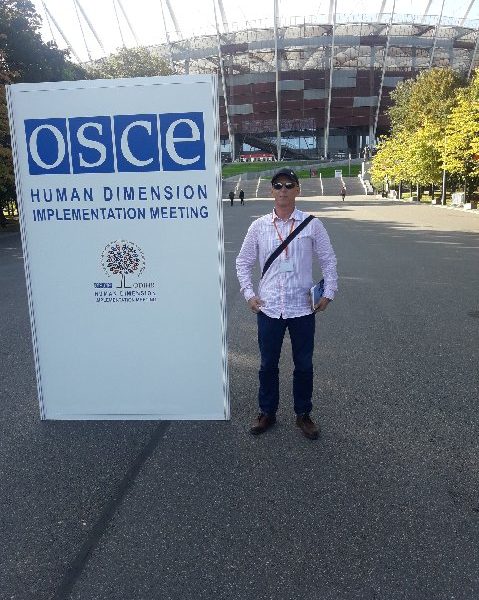At the last session of the UN Human Rights Council in Geneva, a case of discrimination based on ethnicity in Croatia was submitted to their delegation, writes Willy Fautré.
Twenty-five years after the end of Croatia’s war for independence from Serbia, many Serbs living in Croatia report ongoing discriminatory treatment in court by the judiciary.
One such example is the case of Mr. Dalibor Močević, a Croatian citizen of Serbian descent, who has been fighting for decades in Croatian courts regarding property rights issues and, recently, a child custody case.
Mr. Močević was married to Ms. Ž. Šimunović from Našice from 1 January 2003 to 26 August 2006. One of the reasons for their divorce was that his ex-wife struggled with alcoholism and mental health issues. They have a son, I.M., who was born in February 2007.
On 17 June 2008, the Municipal Court in Našice ruled that I.M. was to be entrusted to the care of his mother. Mr. Močević was unable to get shared custody or even visiting rights from the court. He strongly believes that this decision was motivated by prejudices related to his Serb background.
In January 2010, the Našice Municipal Court granted custody of I.M. to his maternal grandparents, who lived at the same address. This was upon the request of the Center for Social Welfare of Našice due to concerns about his mother’s struggles with alcoholism and psychiatric issues. Mr. Močević was not informed that such legal proceedings were taking place despite his address being known by the court. Again, he asserts that the court’s negligence to notify him is because of his Serb origin. He has experienced this prejudice before during a case in property rights after the independence of Croatia from Serbia in 1991.
In January 2011, the Municipal Court of Našice restored the custody of I.M. to his mother and allowed his father visitation once a month for 10-12 hours a time in Našice. Mr. Močević appealed the decision, referring to his broader rights as a father under the national Family Law.
On 10 March 2011, the Osijek County Court overturned the first instance ruling and remanded the case for retrial. The County Court ruled that the disputed decision was taken in violation of the right to a fair trial because the child’s father was not allowed to participate. Mr. Dalibor Močević requested that his ex-wife undergo a psychiatric examination because he claimed that their son was experiencing chronic stress with her. Instead, the court ordered a psychiatric examination of Mr. Močević, who had no history of mental illness or any dependencies. Mr. Močević attributes this to anti-Serb sentiments.
In 2017, Mr. Močević’s ex-wife abandoned their son and left Croatia for an unknown destination. A year later she was extradited from Austria where she had been homeless, mentally unstable and alcoholic. In early 2019, the Municipal court in Đakovo initiated new proceedings concerning the custody rights of I.M. Although his mother had abandoned him, the family court judge Ankica Wolf denied Mr. Močević’s request for custody.
All challenges Mr. Močević brought to the Supreme Court of Croatia for his exclusion from these proceedings by both the judge and the president of the court in Đakovo, as well as the transfer of their case to another court were either rejected or left undecided.
Their child has been living for over 10 years now in a state of mental anguish. Mr. Močević is convinced that judges are refusing to grant him custody of his son because he is of Serb descent.
In 2018, the European Commission on Racism and Intolerance (ECRI) of the Council of Europe (CoE), expressed alarm over the rise of right-wing extremism and anti-Serb hostility in its fifth report about Croatia, the first of the seven Western Balkans countries to join the EU.
In line with the ECRI’s findings, Mr. Močević insists that he has been repeatedly denied justice because of his Serb origin. His lawyer has shared that this is not unique to Mr. Močević’s case, as other Serbs in Croatia have been discriminated against due to various personal or institutional collusions between a handful of judges, political figures and extreme nationalists.
The Author, Willy Fautré, is the Director of Human Rights Without Frontiers.




